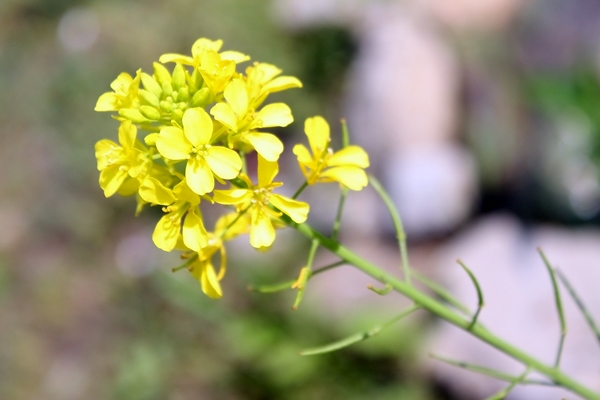29 March 2017. An academic-industry team developed a new crop plant variety that produces cooking oil like rapeseed or canola, but in a warmer and dryer climate. Researchers from University of Copenhagen in Denmark and Bayer CropScience describe their discovery in 13 March issue of the journal Nature Biotechnology.
The team from the DynaMo Center — short for Center of Excellence for Dynamic Molecular Interactions — at University of Copenhagen and Bayer CropScience are seeking hardier plant varieties that can withstand anticipated warmer and dryer conditions brought on by climate change. Among the crops threatened by climate change is rapeseed, an oil-producing plant known in North America as canola. Oil from this plant is used widely in cooking, and according to data from the UN’s Food and Agriculture Organization cited by the authors, is the third-largest oil producing plant in the world after soybean and palm.
Rapeseed or canola is grown mainly in northern Europe, and parts of Canada, and the U.S., where it thrives in a cool and damp climate. With warmer and dryer conditions expected in these regions, a crop plant is needed that can withstand these conditions and still produce the oil desired by consumers. The team led by plant scientists Barbara Ann Halkier, director of the DynaMo Center, and Peter Denolf of Bayer CropScience’s lab in Zwijnaarde, Belgium, used genetic engineering techniques to develop an alternative crop from related mustard plants.
The researchers chose mustard plants because they produce seed oil high in mono- and polyunsaturated fatty acids, but can grow under more arid conditions than rapeseed, and are also more resistant to disease. A problem with mustard plants, however, is their high concentrations of glucosinolates, toxic compounds that the plants use for defense, and also emit a bitter taste. Attempts to develop commercially-viable mustard plants without glucosinolates, say the authors, so far ended in failure.
To design a low-glucosinolate mustard plant, the team focused on genes that transport the glucosinolates from the plant’s maternal tissue into the seeds. Researchers first genetically engineered Arabidopsis plants, a widely-studied model organism in biology with similar properties as Brassica or oilseed varieties, such as mustard and rapeseed, to produce mutations that stopped the transport of glucosinolate to the seeds.
While this first step with Arabidopsis showed the feasibility of genetic engineering to stop glucosinolate production, the oilseed genomes are more complex, requiring more complex engineering and cloning. Working with two mustard plants, Brassica rapa and Brassica juncea, the researchers were able to develop varieties that reduced glucosinolates in seeds by 60 to 70 percent. Tests with the seeds show the low-glucosinolate characteristics were maintained over several generations. And field tests of engineered Brassica juncea plants at three Bayer CropScience sites in Belgium show the plants can be grown commercially.
“The result,” says Halkier in a university statement, “is an oilseed crop with improved agronomic traits that is tolerant to global warming. The new crop will enable cultivation in areas that today is not suitable for oilseed crops, such as the Western part of Canada, parts of Eastern Europe, Australia, and India.”
More from Science & Enterprise:
- RNA-Nanoparticle Spray Protects Against Plant Viruses
- U.S. Public Divided Over GM, Organic Food
- Seedless Fruit Varieties Seen As Food Security Boost
- Spinach Enhanced to Detect Chemicals, Send Signals
- Monsanto Licensing MIT/Harvard Genome Editing
* * *


 RSS - Posts
RSS - Posts
You must be logged in to post a comment.